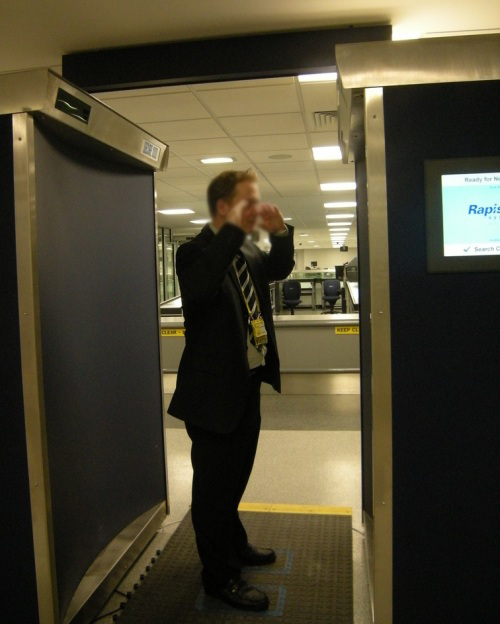Visiting an airport can often be one of the most stressful aspects of going on holiday for many travellers. Ensuring passports and tickets are all safely packed before leaving the house, the endless queues for check in and, above all, the aura of heightened tension surrounding airport security in the years since 9/11. These factors all contribute to some people simply choosing to holiday within the UK rather than face all the hassle of travelling abroad.

However, Manchester Airport hope to attract passengers back through its boarding gates by pioneering a new type of body scanner that ensure the safety of everyone hopping on to a plane, as well as cutting queue times by removing the “frisking” element completely – a security check so hated by many members of the public.
The commercial property is currently trialling backscatter body scanners, which use low dose x-ray signals to post a ghost-like image of passengers moving through the machine onto a monitor. This image is then checked by security personnel to ensure that the passenger on screen is not carrying any concealed weapons or items that should have been put into a tray to be checked in the higher dose x-ray machine used for inanimate objects.
Yet despite a panel of independent European health experts unanimously concluding that the body scanners currently on trial by Manchester Airport pose any risk to health, the trial will be forced to end in October due to legislation from Brussels excluding the technology. Instead, the new generation body scanners will replace them for another trial period.
Andrew Harrison, Chief Operating Officer at Manchester Airport’s parent company MAG, says; “We’re baffled by this situation because health experts say they are safe plus the overwhelming majority of our passengers and security staff prefer body scanners to frisking and it’s frustrating that Brussels has allowed this successful trial to end.
“There’s no doubt that body scanners play a big part. That’s why we are once again investing in new generation scanner technology where the human examination of images is automated.”
The new generation scanners remove the human checking aspect of airport security almost entirely. Instead of x-ray waves scanning the passenger, the machines, manufactured by L3, use radio frequency based millimetre wave technology to scan the entire body. The waves are then interpreted by machines, who flag up suspicious items concealed within clothing or on the body, and instruct security personnel where to search the passenger using stick figure diagrams.
Five new scanners in total will begin to be installed throughout Manchester Airport from the 1st October this year, with the machines found in all three terminal buildings and transfer lounges. The trial is expected to last for three months.
Should the trial prove to be a success, airport bosses will invest in more of the machines to ensure further fluidity in airport checks. In the meantime, Manchester Airport will employ 55 further security staff to ensure high levels of security are maintained within the terminal buildings and departure gates. Passengers, for now, will be checked at security points using a combination of frisking and traditional security scanners.
Would you prefer to simply pass through a single scanner when going through security checks next time you leave the country, or do you believe that the tried and tested means of airport security are the most likely to ensure a safe flight? Do you think that all the money invested in body scanners at UK airports could be better spent elsewhere, possibly going towards methods of cutting queues at check in or processing luggage more quickly and efficiently?
Previous Post
Christmas Temp’s Could be More Permanent at Sainsbury’s